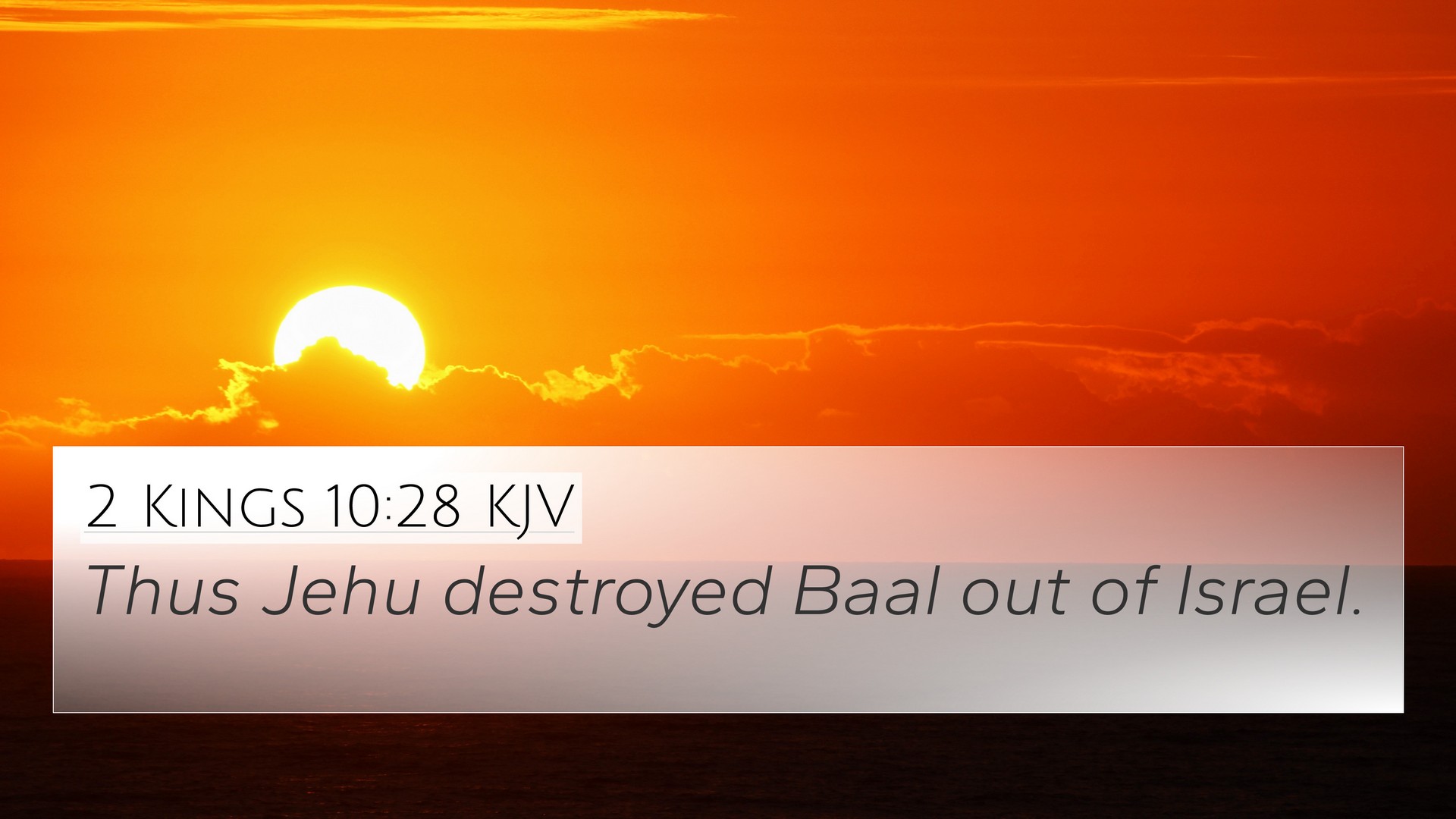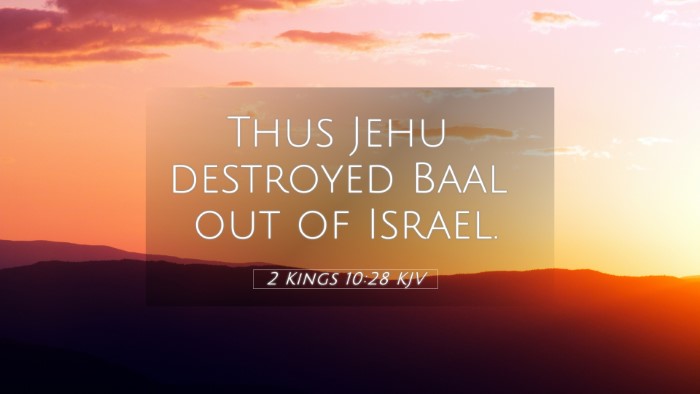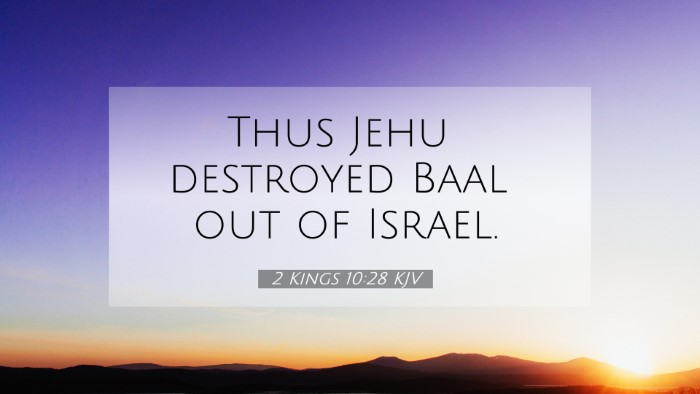Understanding 2 Kings 10:28
The verse 2 Kings 10:28 states: "Thus Jehu destroyed Baal out of Israel." This verse encapsulates a significant moment in the narrative of Israel's history, reflecting the culmination of Jehu's zeal in eradicating the worship of Baal from the land. This action is pivotal as it not only signifies the removal of idolatry but also fulfills the prophetic word against the house of Ahab, aligning with God's judgment and restoration of Israel's covenantal fidelity.
Insights from Public Domain Commentaries
The insights from various commentaries help deepen our understanding of this verse and its implications for both the historical context and its theological significance.
-
Matthew Henry:
Henry emphasizes that Jehu's action symbolizes a holistic purge of idolatry from Israel. He notes that Baal worship had deeply infiltrated Israelite society, influencing moral decay and leading the nation away from Yahweh. The destruction of Baal represents not just a political victory but a spiritual one, aiming to restore true worship and fidelity to God's commands.
-
Albert Barnes:
Barnes highlights Jehu’s unique role as both a king and an agent of divine justice. He acknowledges Jehu's fulfillment of prophecies concerning Ahab's lineage and the elimination of Baal worship as an essential act of reigning as a righteous ruler. Barnes connects this act to the larger narrative of God's sovereignty and the call to the Israelites to return to true worship, free from pagan influences.
-
Adam Clarke:
Clarke provides a nuanced understanding of the societal implications of Baal's destruction. He discusses the historical context regarding how Baal worship represented not only religious but also socio-political factions within Israel. Clarke argues that Jehu’s purge serves a dual purpose: it was meant to solidify his rule while simultaneously calling the people back to a covenantal relationship with Yahweh.
Inter-Biblical Connections
This verse is connected thematically and contextually to various other biblical verses. The act of destroying Baal out of Israel invites reflections on both Old and New Testament teachings regarding idolatry, divine judgment, and restoration. Below are some key cross-references that illuminate this verse:
- 1 Kings 18:40 - Elijah's command to seize and kill the prophets of Baal.
- 2 Kings 9:36-37 - Prophecy concerning Jezebel and the significance of her demise as linked to Baal worship.
- Jeremiah 2:8 - A critique of the priests who did not seek the Lord, indicating a turn towards idolatry.
- Hosea 2:16 - A promise of restoration where Israel acknowledges the Lord, indicating a turning away from false gods.
- 2 Chronicles 33:3 - King Manasseh’s re-introduction of idol worship, a contrast to Jehu’s actions.
- Revelation 21:8 - The ultimate fate of idolaters as a warning to future generations regarding the seriousness of idolatry.
- Matthew 7:13-14 - The call towards the narrow path, implicating faithfulness to God away from the broad road of idolatry.
Thematic Analysis
The destruction of Baal can be analyzed thematically to understand its implications for future generations of believers. This act serves as a profound reminder of the dangers of idolatry and the importance of faithfulness to God. The covenant relationship is a recurring theme throughout Scripture, and this verse powerfully acts as a reaffirmation of God's call to holiness.
Bible Verse Cross-References
In studying 2 Kings 10:28, employing tools for cross-referencing can help uncover the intricate web of biblical themes and teachings. Below are some methods for effectively using Bible cross-references:
- Bible Concordance: Utilize concordances to find related verses based on key terms such as "idolatry" and "covenant."
- Bible Cross-Reference Guide: These guides can help trace themes such as divine judgment and restoration through the texts.
- Cross-Referencing Bible Study: Methodically studying verses that have similar themes or outcomes helps solidify understanding.
- Bible Reference Resources: Seek comprehensive materials that provide in-depth analysis of themes and their interplay across different scriptures.
Conclusion
The verse 2 Kings 10:28 serves as a crucial focal point in the narrative of Jehu's reign, illustrating God's commitment to purging Israel of idolatry. Through the insights from notable commentaries and the connections with other biblical texts, one can better understand its theological significance and the overarching message of faithfulness to God. Those studying this verse and its implications are encouraged to utilize cross-referencing techniques and tools to further explore the scriptural dialogues that surround this impactful moment in Israel's history.


